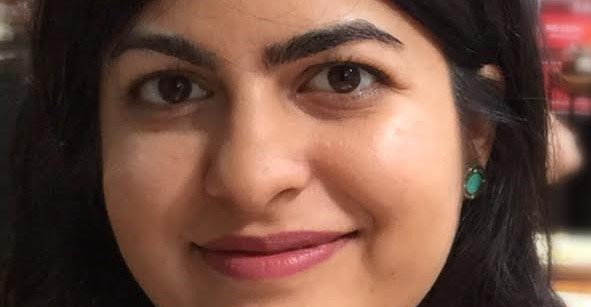Anisa Puri has worked mainly in oral history, heritage interpretation and project management. She is President of Oral History NSW, and managed the Australian Generations Oral History Project from 2012-2015. She is currently working as a historian at a heritage consulting firm and is also involved in the HIV/AIDS Volunteers History Project at Macquarie University. Her first book, Australian Lives: An Intimate History, (with Professor Alistair Thomson) will be published by Monash University Press in early 2017.
What made you decide to pursue a career in history?
A third-year university class about the uses of the past introduced me to public history and the possibility of working as a historian outside academia. History suddenly felt a lot more relevant, as I learnt that a career in history could be about engaging audiences, and furthering understanding about how and why history matters. I ditched the career in journalism I had planned and enrolled in a Master of Public History degree instead.
My first job in the field was as a contractor for the National Library. I was tasked with creating timed summaries for oral history interviews in several of their collections. From drovers to Prime Ministers, it was a treat to learn about such diversity of experience across recent history, and to hear an enormous range of accents and styles of speaking.
Who is the audience for your history?
It varies hugely. As a historian at a heritage-consulting firm, some of my work is written for archeologists, architects, government bodies or developers. However, a lot of my work revolves around developing interpretive content for heritage-listed sites, and catering for a public audience. I recently developed interpretive content for an exhibition. Writing for a general audience probably excites me most—I love the challenge of trying to simultaneously engage the skimmers, delvers and divers! A book I recently finished—Australian Lives: An Intimate History, with Professor Alistair Thomson—was written with researchers, students and the public in mind.
What’s your favourite historical source, book, website or film?
I have a very soft spot for the National Library’s Oral History Collection. I love how much of it is accessible, discoverable and available for public use.
If you had a time machine, where would you go?
Probably Australia, before 1788. I’d love to experience Indian pre-colonial culture too.
Why is history important today?
I thought Geoffrey Blainey summed this up beautifully at the recent PHA Conference when he described history as the reservoir of human experience. Surely, that’s valuable! By interpreting the past, we contextualise the present and bring people, places and past experiences to life.

Great to hear about your work, Anisa. I’ll be looking out for your book!
Wonderful anisa, waiting to read your book.
Welcome Anisa! Glad you have joined us bringing your experience working in Melbourne
and pitching in with Oral History NSW too.